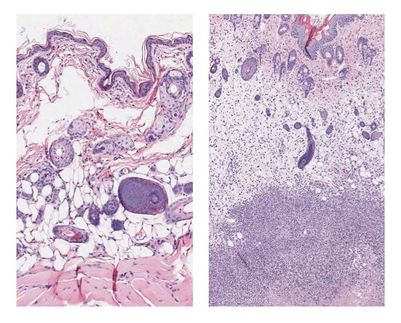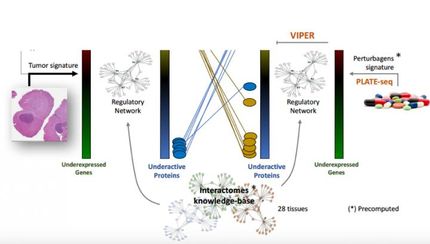Gene activity reveals dynamic stroma microenvironment in prostate cancer
Advertisement
As stroma – the supportive framework of the prostate gland – react to prostate cancer, changes in the Expression of genes occur that induce the formation of new structures such as blood vessels, nerves and parts of nerves, said researchers at Baylor College of medicine in a report that appears in the current issue of the journal Clinical Cancer Research .
In this study, using special techniques and gene chips that allowed them to sample the entire genome, the researchers found changes in 1,141 genes. They were either upregulated – meaning that there was more of the protein with which they were associated than expected – or downregulated, which meant the opposite, said Dr. Michael Ittmann, professor of pathology at BCM and a senior author of the report. These gene changes may explain why men with reactive stroma face a more aggressive disease, said Ittmann and Dr. Gustavo Ayala, professor in the departments of pathology and urology at BCM and another senior author.
"Often in prostate cancer, you don't see much change in the stromal cells," said Ittmann. "However, in this subgroup of patients (in which the stroma become visibly reactive), you see a histologically recognizable change in the appearance of the stroma. Dr. Ayala has shown previously that this correlates with a bad prognosis. We know the stroma are doing something to promote bad behavior in cancer cells."
"These findings are very important as this is the first step in discovering pathways and mechanisms in the tumor microenvironment that could be targeted as a novel therapeutic approach to treat prostate cancer by treating the cancer microenvironment niche", said Dr. David Rowley, professor of molecular and cellular biology and urology at BCM, and another author.
Dr. Chad Creighton, an assistant professor in the Dan L. Duncan Cancer Center at BCM, searched the scientific literature to determine the biological processes with which the genes with changes had been linked in prior studies.
"We found that the top terms linked to the genes were related to neurogenesis (the growth of neurons or nerve cells)," said Ittmann. "This independently supported Dr. Ayala's previous finding that prostate cancer prompts the growth of new nerve cells, which is linked to poor prognosis."
Other genes were linked to axongenesis, which refers to new axons, the slender projection that conducts nerve impulses away from the body of a nerve cell. That finding was exciting because it confirmed the neurogenesis findings from a new direction, said Ittmann and Ayala.
"We also found many changes in the DNA damage pathway genes," Ittmann said. These genes reduce the negative effects of DNA changes on cells – either by correcting the DNA or prompting cell death. "This implies that there may be different kinds of DNA damaging stimuli going on in the stroma as well as cancer cells," said Ittmann. "DNA damage could be related to mutations in the stroma."
The researchers also found changes in growth factor pathways, including those for fibroblast growth factor and transforming growth factor beta as well as pathways linked to the growth and maintenance of stem cells, said Ittmann.
























































